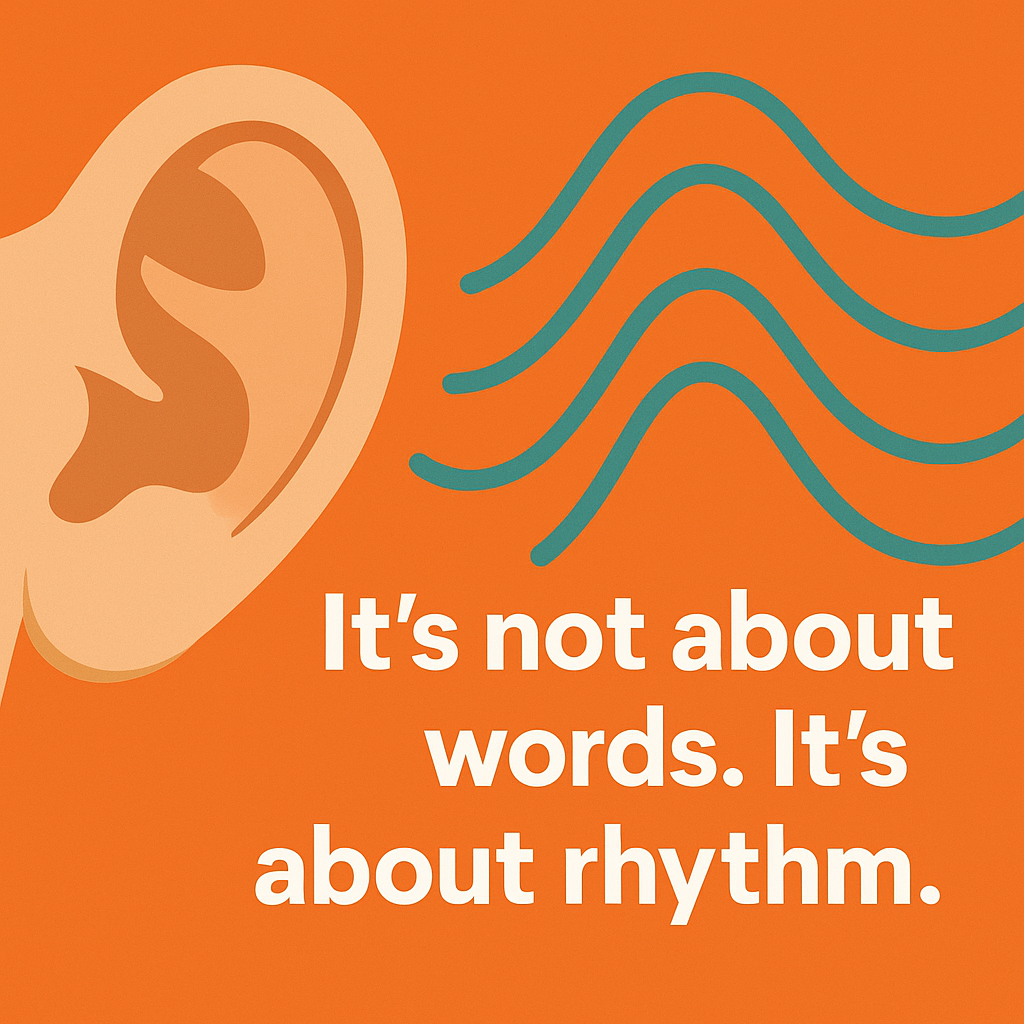Most students believe they fail listening because they “don’t know enough words.” But the truth is different. The real challenge is not vocabulary — it’s rhythm, reduction, stress, and what your brain expects to hear.
When students listen, they often try to match every sound with a mental dictionary of letters and words. Real speech doesn’t work this way. Native speakers reduce, connect, skip, and stress in ways that textbooks rarely prepare you for.
English — The Trap of Reduction
In English, vowels disappear or shrink when they are unstressed:
- photograph → /ˈfoʊtəɡræf/
- photography → /fəˈtɑːɡrəfi/
The same root looks completely different depending on where the stress falls. If you “listen for letters,” you’ll miss the point — listen for rhythm and stressed syllables.
German — Word Boundaries Disappear
In German, what looks clear on the page becomes blurred in speech:
- Ich habe es gesehen → often Ichab’s geseh’n
- Hast du es gemacht? → almost Hasd’s gemacht?
Expecting to hear each word separately leads to failure. Train your ear to catch the structure, not the pieces.
French — Liaison and Elision
French doesn’t just connect words — it transforms them. A final consonant “jumps” to the next word:
- les amis → [lezami]
- vous avez → [vu zave]
The difficulty isn’t vocabulary; it’s recognizing that sounds change position depending on context.
Russian — The Power of Stress
In Russian, one spelling can mean different things depending on stress:
- му́ка (torment, suffering) vs мука́ (flour)
- за́мок (castle) vs замо́к (lock)
Ignore stress — and the same letters create different realities.
What This Means for Learning
Listening isn’t about catching every word. It’s about training your attention to notice patterns:
- stressed syllables, not letters;
- rhythm, not spelling;
- connections and reductions, not isolated dictionary forms.
At Levitin Language School (Start Language School by Tymur Levitin), we teach listening as a skill of attention, not memory. We don’t ask: “What word did you hear?” We ask:
- Where was the stress?
- What part was reduced?
- What rhythm did the sentence create?
When you learn this way, fast speech stops being “noise” and becomes understandable.

Related Reading from Our Blog
→ How Emphasis Changes Meaning in English Sentences
→ Beyond Word Order: The Emotional Power of Emphasis in German
📚 Category: Interesting Information
© Author: Tymur Levitin — Founder and Head Teacher at Start Language School by Tymur Levitin / Levitin Language School
























